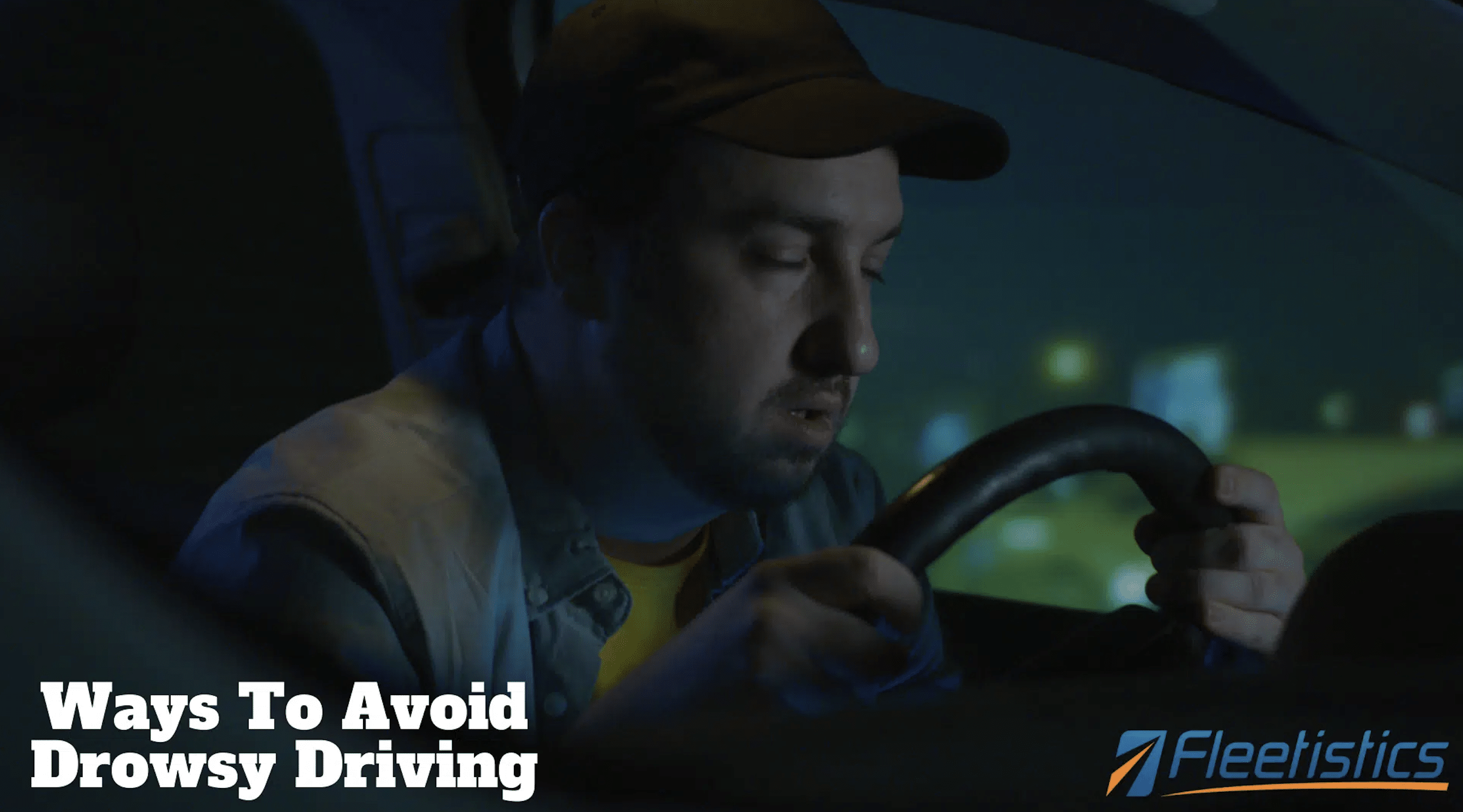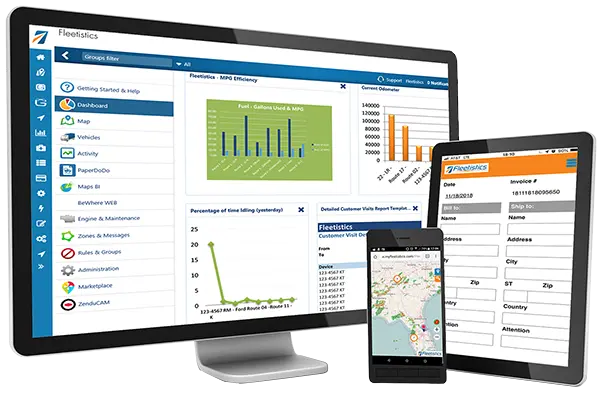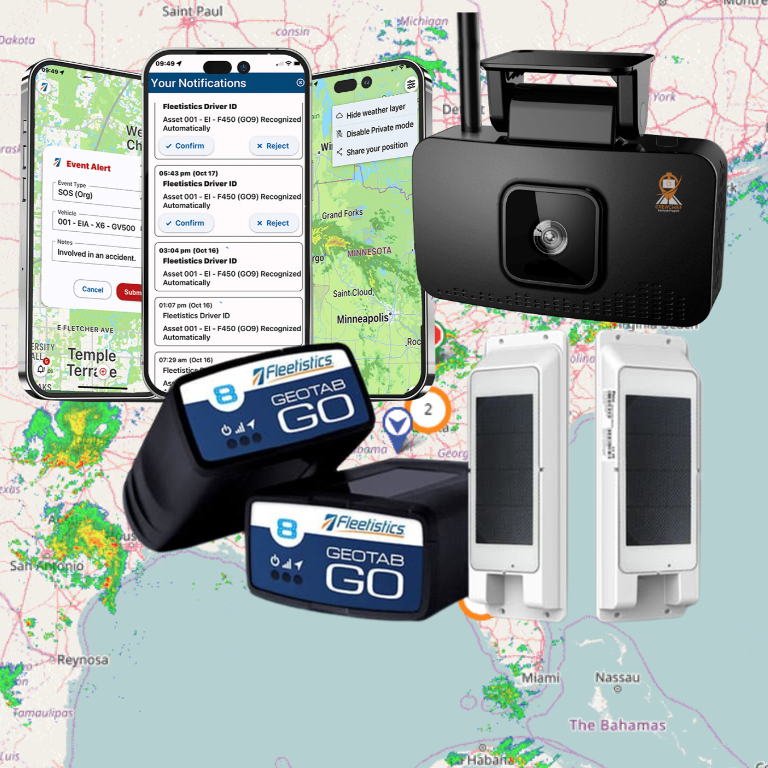Drowsy Driving Statistics
According to one post, the National Highway Transportation Safety Administration (NHTSA) says. Drowsy driving kills but is preventable. They attribute 697 deaths in 2019 to drowsy driving related crashes. In another article, Jesse Blatt, NHTSA Senior Research Psychologist estimated that getting drowsy while driving, specifically fatigue and sleep deprivation, contributes to as many as 100,000 reported collisions annually in the US, resulting in as many as 1500 deaths.
Even vacationers driving long distances that they are not used to can fall victim to drowsy driving. In the case of leisure travelers and long weekend road trips, alcohol may also become a contributing factor. Bottom line, we all share the same roads and inherent risks.

Getting Drowsy While Driving Lighter Duty Vehicles
For service truck and delivery drivers, it is nearly impossible to track as work hours and driving time are not tightly regulated as they are for over the road truckers. But when deadlines are looming and workers put in overtime hours, work related fatigue can also contribute to getting drowsy while driving.
Even vacationers driving long distances that they are not used to can fall victim to drowsy driving. In the case of leisure travelers and long weekend road trips, alcohol may also become a contributing factor. Bottom line, we all share the same roads and inherent risks.
Danger Signs of Drowsy Driving
According to the Sleep Foundation, these are the signs to be aware of. If you notice them, you should look for the next available opportunity to stop and rest. If you notice them in a vehicle you are driving near, put some space between that vehicle and yours.
- Frequent yawning
- Feelings of dozing off
- Tired eyes, droopy eyes, or an increase in blinking
- Drifting into other lanes or hitting “rumble strips†on the road
- Inability to remember the last few miles
- Missing a road sign or exit
- Following other cars too closely
- Difficulty maintaining proper speed
Liability Issues
There is a wealth of information to be found on the law firm websites that specialize in collision litigation. It is not surprising that trucking companies are concerned about potential nuclear verdicts when you see the number of law firms engaging in this specialty. One such firms states on their site, fatigued truck drivers account for approximately 750 deaths and 20,000 injuries every year according to the FMCSA. What we learn from their content is that if you are involved in a collision and suspected of drowsy driving, that is just the beginning. The deeper your pockets, the deeper they will dig.
Drivers taking prescription meds for legitimate conditions may not be aware of the side effects of those drugs. Any drugs that have side effects such as dizziness or drowsiness should be avoided entirely to prevent getting drowsy while driving. Drivers under pressure to pick up the next load or deliver on time may be tempted to skip a break or a vehicle inspection to save a few precious minutes. If this comes to light in a subsequent litigation, both the employer and the driver will be held accountable.

Get A Good Night’s Sleep to Prevent Drowsy Driving
As the old saying goes, “An ounce of prevention is worth a pound of cure.” Nothing is better than a good night’s rest to prevent getting drowsy while driving. There are a variety of sources available to truckers (as well as the rest of us) for the sole purpose of getting better, more comfortable sleep for improved health and wellness. We found lots of great suggestions for drivers on MySlumberyard.com as well as other health and wellness sites.
Here are the top 10 suggestions we found.
- Getting good, restful sleep is critical! Create a great sleep environment in your sleeper cab. This includes a good comfortable mattress, mattress topper and pillow appropriate to your size and weight. Be sure to have a way to block light if you have a window in your sleeper cab. Have blankets or comforters in weights appropriate to the climate/season you are driving in.
- Park as far from buildings, street/parking lot lights, and other vehicles as possible for a quieter sleeping spot. Use white noise or ear plugs when needed. Avoid parking next to reefer trucks and live animal loads.
- Treat yourself to a motel with a real bed every now and then.
- Have a sleep routine. As much as possible stick to that routine so your body develops a rhythm for when it’s time to drive and when it is time to rest. Keep in mind, experts say midnight to 6:00 AM is the drowsiest time of day for most people.
- If possible, bring a travel companion. Good company and conversation help to keep you alert.
- If you have problems falling asleep or staying asleep, or often feel sleepy during the day, see your doctor for evaluation of potential sleep disorders.
- Learn where the best Truck Stops and Rest Areas are along your route and plan your drive time so you can stop at them.
- Eat nutritious meals and avoid excessive eating or drinking before going to sleep.
- Avoid stressful phone calls before going to sleep.
- We all need to wind down after a busy day. Consider a meditation routine, leisurely walk, yoga, or listening to relaxing music before going to bed.














